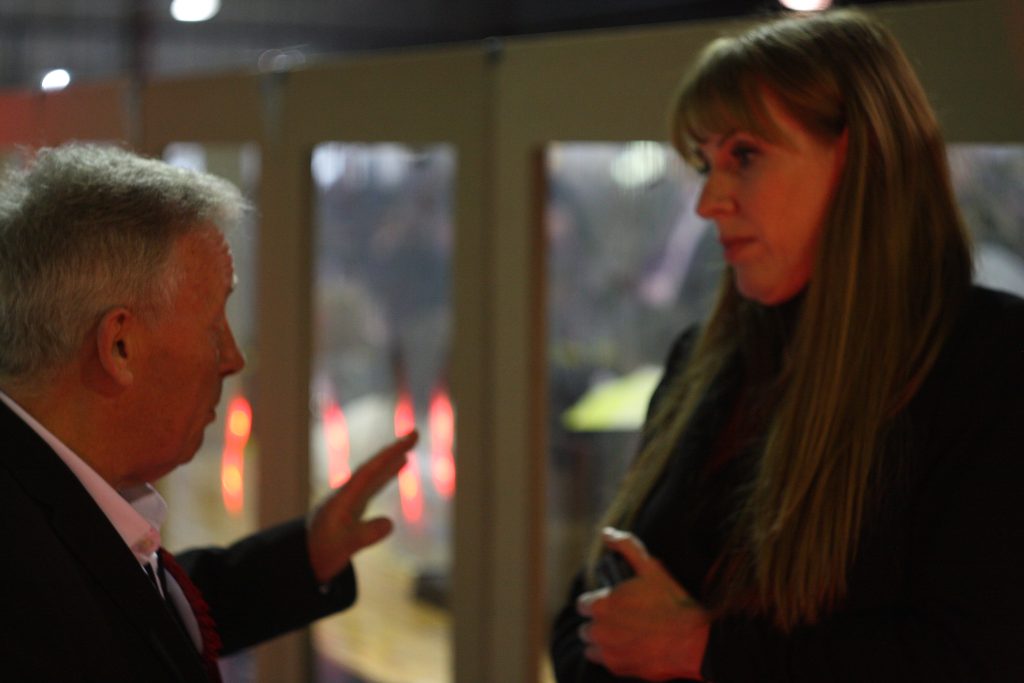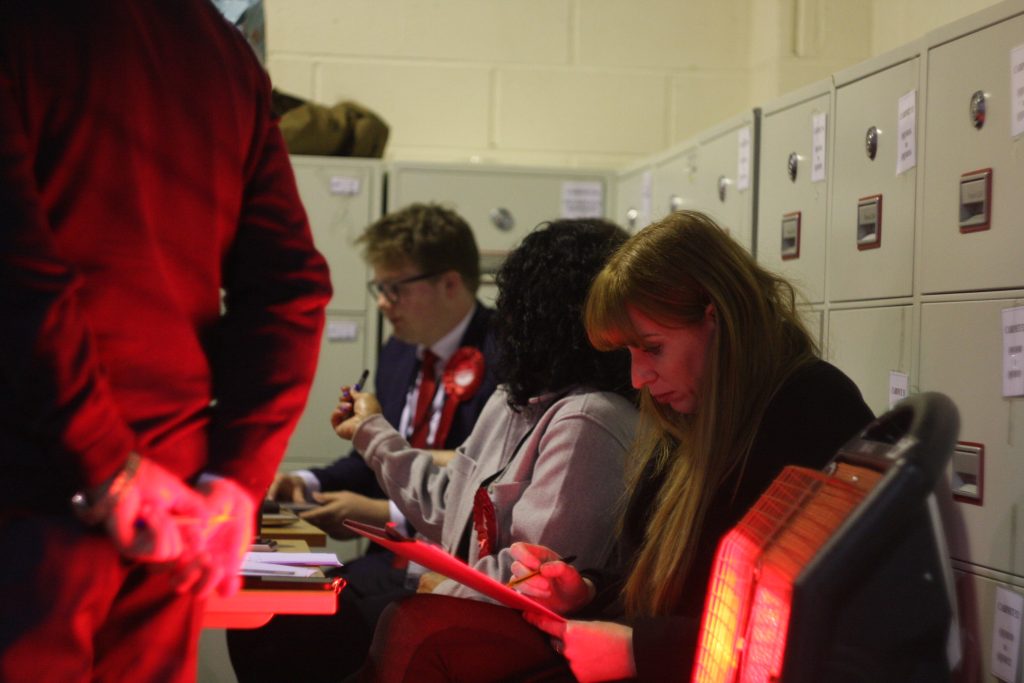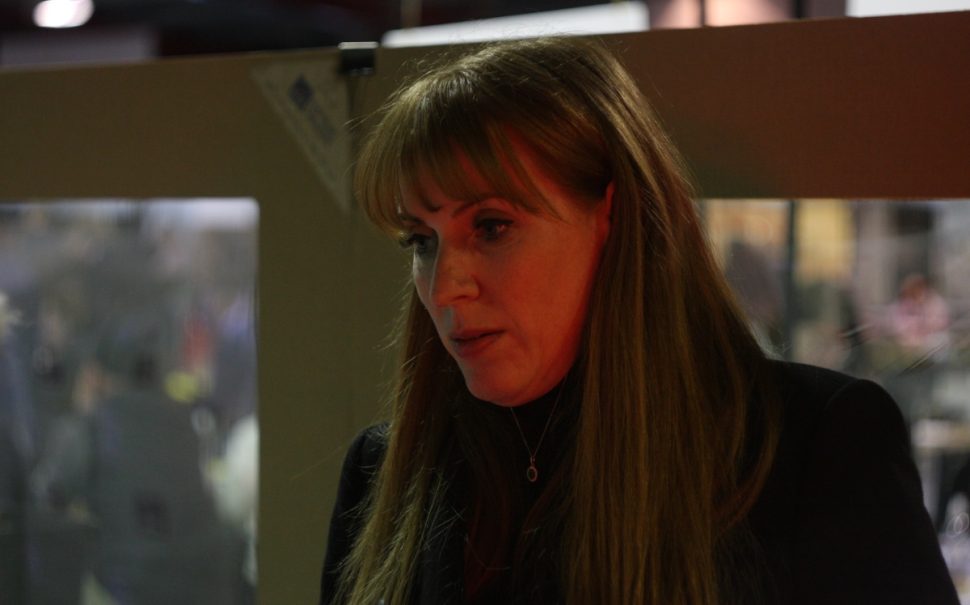Mancunian Matters spoke to the Angela Rayner MP for Ashton-under-Lyne while in attendance at the local election count in Tameside.
The Deputy Leader of the Labour Party towed the cabinet line on Labour’s decision to drop their pledge for the ‘abolition of tuition fees’.
Rayner asserted that the party’s plans have had to adapt to a struggling economy following the COVID Pandemic, the invasion of Ukraine and Liz Truss’ controversial ‘mini-budget’.
Labour’s leader, Keir Starmer, and his shadow cabinet were elected in 2020 on their ‘ten pledges’, which also included commitments to economic justice, workers’ rights and migrants’ rights.
Rayner said: “The pledges that Keir put forward were before the pandemic, before the war in Ukraine and before the Tories crashed the economy. We’re in a difficult place now and we need to prioritise.
“It [student fees and debt] is a priority but it’s about being honest with voters about what we can do now. We’ve got one cake; we can try and grow the cake, and that’s about our tax and spend funds, but you’ve also got to see how you slice that cake up and what your priorities are.
“It’s not about ‘going back on it’. It’s about making sure people understand that, in the first term, this is what we’re able to do.
“How many people have not got adequate housing at the moment? How do we bring down energy bills? How do we make councils energy secure the future? We’ve also got to do something about childcare; we’ve got to do something about poverty that people are facing; and we’ve got to tackle the climate crisis.
“We will be looking at doing a programme for students and young people. Of course we will. But it has to be in the context of the wider overall budget.
“We’ve got to balance the books, we’re very clear on that. And we will do that going into the Labour government, if we’re fortunate enough to win the general election.
“We’ve had 13 years of Conservatives who have crashed our economy and made people worse-off. Our debt in this country is significantly worse because of the conservatives who have been in power.
“We’ve got to reverse that trend before we can then make more commitments.”

The last party-in-government to promise the scrapping of tuition fees was the Liberal Democrats, who were elected in 2010 into a coalition with the Conservatives.
Despite the policy being on the front page of their manifesto, the party would later U-turn on the policy.
Tuition fees were first introduced under Tony Blair’s Labour government. Students who began their courses in Autumn 1998 paid £1,000 a year. This was tripled to £3,000 a year for students starting their courses in 2006, then tripled again to £9,000 by the coalition government, starting in 2012.
Subsequently, tuition fees were increased to £9,250 in 2017.
Almost £20bn is loaned to about 1.5 million students in England each year, with the value of outstanding loans at more than £180bn, according to The Guardian.
Increasing rates of inflation have also affected students’ debt with just a 2.8% increase on maintenance loans coming into place at the start of this year. This rise falls below the current inflation rate of 10.7%.
The NUS called the increase “woefully inadequate” and said it would mean students were £1,500 worse off than if support had increased in line with inflation.
The NUS published research last July which estimates a third of students had just £50 a month to live on, after paying rent and bills.
Today, the forecast average debt for students who started their course in 2021-22 is £45,800 on completion of their course. Just 20% of those full-time undergraduates are expected to repay them in full, according to government projections.
Students in England were originally only meant to start repaying loans from Student Finance England when they start earning over £27,295 per year. This amount has lowered by £2,295 to £25,000.
The time allotted to pay-off the debt, before it is written-off, will also be increased by a decade to 40 years.
Martin Lewis from Money Saving Expert recently explained on ITV’s Good Morning Britain that, currently, the state pays 40p in the pound whilst the student pays around 56p. However, come September this will change.
Under the new system, the state will pay 19p in the pound, and the student will pay 81p.
Martin Lewis said: “We should stop calling it a student loan. This is a tax. It is a hypothecated, limited form of taxation.
“There is a fundamental misunderstanding about how student loans work, because they are demonised as debt, but under this plan they will work far more like a graduate tax. For most people, it will be like a 9% additional tax burden above the £25,000 threshold.
“Many university-leavers will end up repaying more than double what they do under the current conditions. In practice, the majority of graduates will be paying their student loans for most of their working lives.”

The Labour Party is set to announce a reworked policy to replace their original tuition fee pledge.



